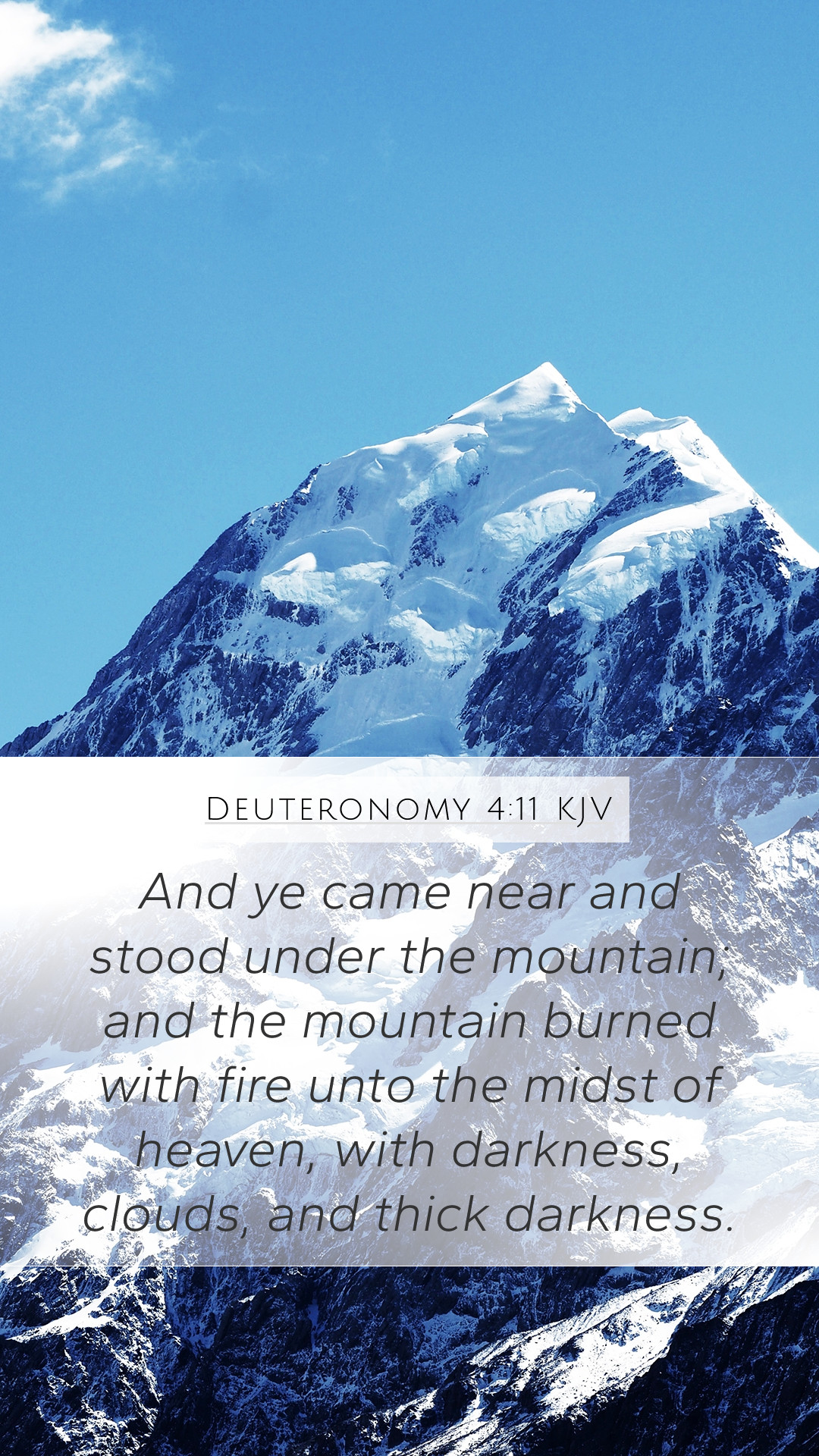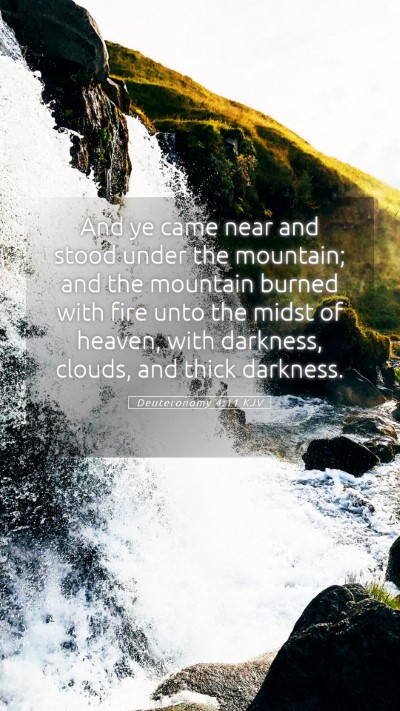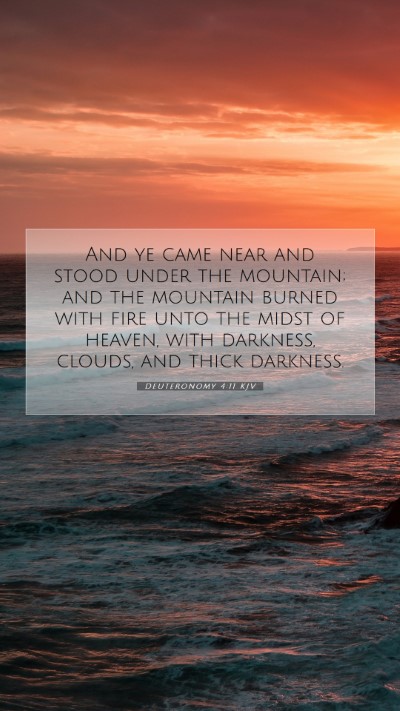Understanding Deuteronomy 4:11
Bible Verse: Deuteronomy 4:11 - "And you came near and stood at the foot of the mountain, and the mountain burned with fire to the heart of heaven; darkness, clouds, and thick darkness."
Overview
In Deuteronomy 4:11, we encounter a vivid description of the Israelites standing at the foot of Mount Sinai as God manifests His presence. This moment is vital for understanding the relationship between God and His people. The verse encapsulates themes of fear, divine majesty, and the significance of God's law.
Contextual Background
This passage occurs in the context of Moses reflecting on the giving of the Law to the Israelites. It serves as a reminder of the solemnity and grandeur of the covenant established between God and Israel. Understanding this historical context is essential for interpreting the verse and its implications for the Israelites and for today's readers.
Interpretation and Commentary
Matthew Henry Commentary:
- The Fear of the Lord: Henry emphasizes that the awe-inspiring presence of God on the mountain served to instill fear and reverence in the people, urging them to recognize God's holiness.
- Divine Revelation: The burning mountain symbolizes God's consuming fire that purifies and reveals. It demonstrates that God's presence is not to be taken lightly, and His words carry divine authority.
Albert Barnes Commentary:
- Stood at the Foot: Barnes notes that standing at the foot signifies a distance maintained due to the holiness of God—a reminder of the separation between a holy God and sinful humanity.
- Darkness and Fire: He elucidates that the combination of fire and darkness represents the dual nature of God's presence—His glory and the terror it brings to sinful hearts.
Adam Clarke Commentary:
- Symbolism of the Mountain: Clarke elaborates on the mountain as a symbol of God's immovable strength and the unapproachable nature of His presence, where no man can ascend without divine permission.
- Thick Darkness: The thick darkness surrounding the fire emphasizes the mystery of God, showing that while He is revealed, He remains shrouded in divine mystery.
Theological Insights
Deuteronomy 4:11 highlights several theological themes:
- Holiness of God: The attributes of God displayed through fire and darkness illustrate His majesty and holiness, prompting an understanding of the importance of approaching Him with respect.
- Covenantal Relationship: This verse is foundational in comprehending the covenant relationship that God desires with His people, where divine laws are established.
- God’s Revelation: The imagery found here is a metaphor for God’s communication to humankind. His intentions, decrees, and the fullness of His character are made known, albeit within the confines of His holiness.
Bible Study Insights
For those engaged in Bible study, this verse provides profound insights:
- Application of Fear: Today's believers can learn the value of reverence towards God in their daily lives, recognizing His power and authority.
- Understanding God's Law: Reflecting on the gravity of the commandments shared at Sinai helps believers grasp the seriousness and importance of obedience to God's Word.
Cross References
- Exodus 19:18: Similar imagery is used to describe the manifestation of God on Mount Sinai.
- Hebrews 12:18-21: This passage compares the experience at Sinai with the new covenant, emphasizing fear and reverence.
- Psalms 97:2: Highlights the sovereignty and majesty of God in darkness and righteousness.
Conclusion
In conclusion, Deuteronomy 4:11 serves as a powerful reminder of God's holiness, the severe consequences of sin, and the beauty of covenantal love. Through careful Bible verse interpretation, this passage invites us to appreciate the depth of God's revelation and understand the seriousness of His commandments. Such insights are invaluable for Bible study groups and individual study, encouraging a deeper relationship with God.


